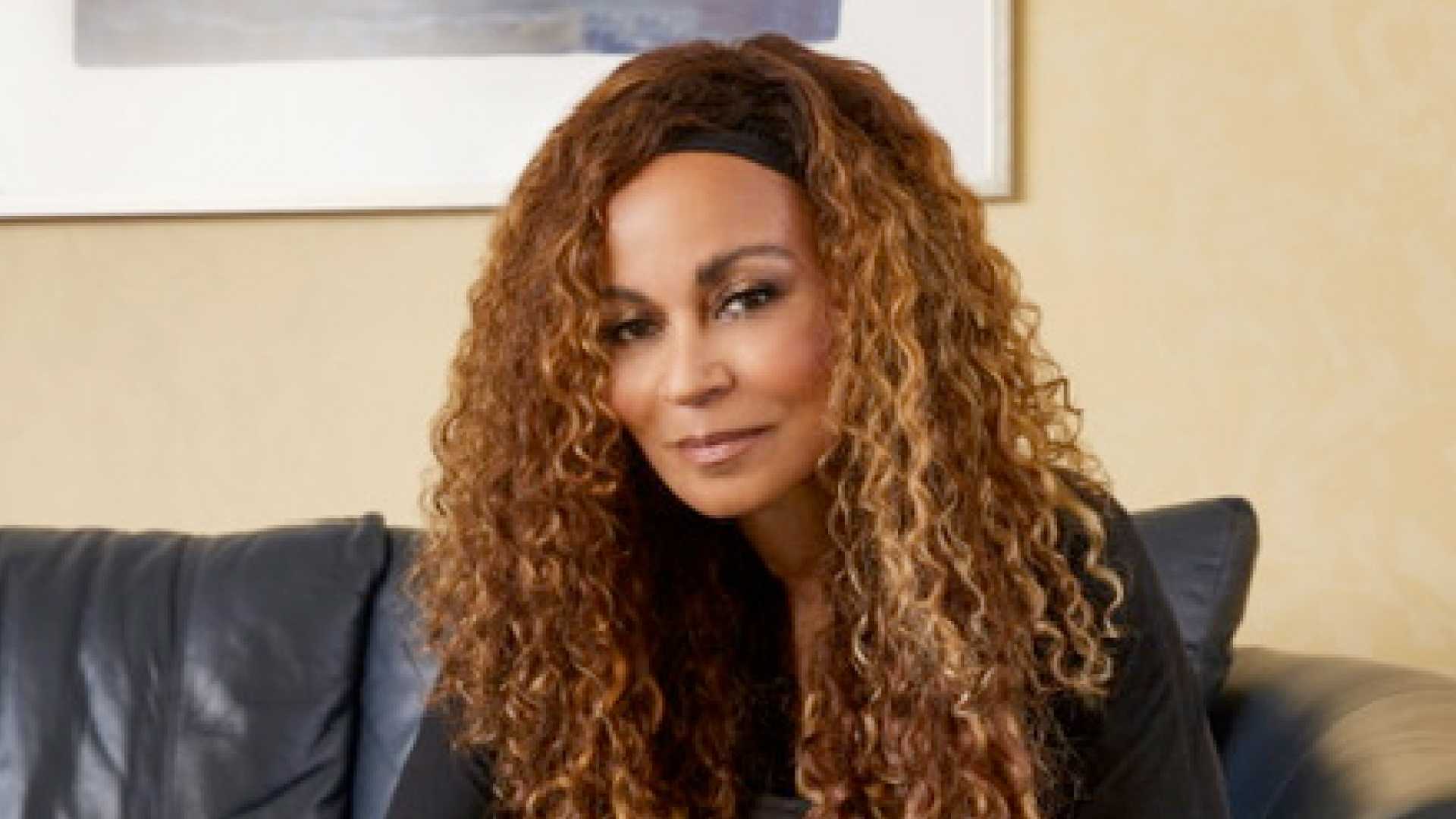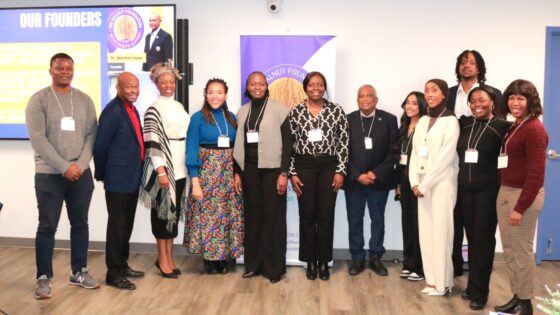on
BY SIMONE J. SMITH
“My hope is that Broken Vows: Stories Of Separation, will create a dialogue of healing for its audience members. For those going through a separation themselves—moving through the darkness to the light–I hope they will share this documentary and The Resource as a conversation starter. I also hope they reach out for ’help’ when they need it.” ~ Filmmaker & Social Advocate, Sunnie McFadden-Curtis ~
I was first introduced to this dynamic woman, when I received a press release about her multi-award-winning feature-length documentary BROKEN VOWS: Stories of Separation. This gripping and realistic documentary takes you into the lives of women, their personal stories, and tales of those caught in the crossfire of marriage breakdown and separation.
Anyone who has gone through a separation knows that it can be one of the most psychologically exhausting times in a woman’s life. There is often an expectation to make life-altering decisions under extreme duress. The pandemic has aggravated issues between couples due to: separation, isolation, from family and friends, loss of income, economic instability, disruption of regular routines, and imposed quarantines. This has forced individuals to stay home together, percolating conditions for marital chaos, domestic violence, and separation.
As a lifelong social advocate for women and children, Sunnie decided to take on this topic, and share the stories of women who have experienced BROKEN VOWS. This film follows the socially conscious producer’s previous projects: Bullying: A Culture of Silence, Cyber Bullying: Where Are We Going Wrong? & Shane r u there?
The filmmaker and her son Brennon were honoured to be invited to the United States Senate to take part in roundtable discussions on ways to make schools safer through anti-bullying education, and as a keynote speaker, McFadden-Curtis has also spoken internationally on anti-bullying, providing screenings of her powerful documentary, Bullying: A Culture of Silence.
Last week I had the honour of sitting down with Sunnie for a one-on-one discussion about her life as an actress, advocate and a filmmaker. She began by sharing with me a little bit about her early life.
“I was born and raised in Toronto. My father was from St. Louis and retired in California, My mom was English, Irish, and Scottish heritage. My father was a performer and was performing worldwide. He met my mom in Toronto, and he would come back to visit her whenever he could. It was actually during one of his visits that I was conceived.
Life was very interesting. I was raised in Scarborough by my grandmother (mother’s mother), and it was predominately a White environment. I didn’t know the difference between White and Black. It wasn’t until later that I realized I was Black. I was confused, and I wasn’t in an environment to learn more about my Black heritage. To be honest, it really wasn’t spoken of. I was in High School when I began to learn more about my Black heritage. I would go back and forth between groups, but I wasn’t well received by the Black students. I was more about whom I clicked with. I was bullied because of this.”
Sunnie shares with me that her creative side emerged very young. “I began taking dance lessons when I was six. I invented a toy that was mass-produced (the ballerina swinger). My step grandfather was an inventor. I took a skipping rope after removing the ends, and pulled one end through the hole tide it and then tide the other side big enough to put my foot through it.
“No way!” I exclaimed. “You invented that toy. I remember that toy very well.” I chuckled. “I also remember tripping and busting my lip playing with it.”
“I am so sorry to hear that,” Sunnie said. “I hope that at least you enjoyed playing with it. Okay, where was I? Yes! I was really interested in dancing. I don’t know how good I was, but I loved it. I would choreograph dances, and I would be part of the plays at the school. It was something that inherently I loved.”
She started acting in her mid-twenties, and it wasn’t easy then. There were not a lot of roles for Black girls, but the good thing was that Sunnie was self-motivated.
“I am not a quitter. It would get discouraging at times, but not enough to give up. Back then, you needed six credits to be part of the union, and they brought it down to three to give blacks a fare opportunity to become part of the union. I was modelling during this time, and that was going very well. I would get commercials, but I didn’t get really good roles until later.”
She had done a few movies of the week, and then she landed the role of the lifetime. “Only problem, there was no training for the role, Sunnie tells me. I got a phone call from my agent, and she told me the producer of “All my Children” was starting a show in Toronto. I said to my husband at the time, I am going to get this. I had a chance to visit the studio, and when I got in there and was looking around, something told me that I was going to get that part.
I had a chance to dialogue with the producer and it went really well. Within a week, I was traveling to Nevis (24 hours away), and this is when I found out that I got the part. I had to get back within 48 hours to do press. 48 hours later, I am heading to Antigua, and from there back to Toronto.
Interestingly enough, it was during a press release that Sunnie found out the name of her character.
“So, I was asked what my character’s name was, and I had no idea. I asked one of the writers, and they told me that my character’s name is Sunny. Playing the role of Sunny was difficult at first. During a break in scenes, I had to go back to the dressing room and pep talk myself. This was one of the highlights of my career and I loved it. When I started playing the role, I found out that I was pregnant, but this didn’t stop me. Since then, I have been in and out of acting for most of my life.”
Filmmaking started for Sunnie in 2003. It was part of the social advocacy that she was becoming a part of.
“My son was getting bullied, and as a parent, I was frustrated. I decided that I had to fill the void with education, so I sat down with my son and said, ‘How would you like to do a documentary on bullying?’ He took three days to answer, and he came back and said ‘Yes.’ I ended up taking the lead on the project, and it took me three years to complete it.”
The first film festival she entered the film in was the Reelworld Festival, and it won an award. When she completed the documentary and film festivals, she decided to develop a program and brought it into schools.
“What I loved during my time with students was when I would see the light bulb go off. It meant that something had clicked, and that was the whole point. The program was called “The Ripple Effect!” We looked at how bullying affected everyone involved in their lives. It was recognized by the school board and put in the registry.
I went on that journey for some time and then I began to speak internationally on bullying. It reached 47 cities across North America in universities and libraries.”
“Sunnie, what made you decide to focus on relationships for your current project?”
“Well, BROKEN VOWS: Stories of Separation, spawned from the experiences that my friends were having. Many separations are sequestered in the courts, and this can be extremely painful for those involved. I also went through a separation and had my own experience with it. There was nothing out there like this. I really thought that if I help women subsequently I help their children).
There were moments when I stepped away from the project. I must admit though, I am pretty good at separating myself, and compartmentalizing. The day I had to build my dramatization, I had to live some of what I experienced. I am proud of myself for getting through it. On the second day, I was very conscious not to make people feel uncomfortable, or uncomfortable for me. There were some difficult dramatizations that I had to recreate.
People need to know how to support women during a separation. The film is not just for women even though it is based on women’s stories. There is something in there for everybody.”
Committed to providing hope, McFadden-Curtis has created a digital resource BROKEN VOWS: Stories of Separation “The Resource” to the documentary, which offers real resources that she hopes will help women move forward after separation.
The digital Resource will address the gnawing question: When a marriage ends, where do you begin? BROKEN VOWS: The Resource will be available for purchase at: www.brokenvowsfilm.com The resource can be purchased as individual volumes or in its entirety.
If you want to keep us with Sunnie on social media, you can find her on:
INSTAGRAM: @sunniebiz13
INSTAGRAM: @brokenvowsdocumentary
FACEBOOK: @smcfaddencurtis
FACEBOOK: @brokenvowsfilm
TWITTER: @stopthesilence
Stay in the loop with exclusive news, stories, and insights—delivered straight to your inbox. No fluff, just real content that matters. Sign up today!
We, as humans are guaranteed certain things in life: stressors, taxes, bills and death are the first thoughts that pop to mind. It is not uncommon that many people find a hard time dealing with these daily life stressors, and at times will find themselves losing control over their lives. Simone Jennifer Smith’s great passion is using the gifts that have been given to her, to help educate her clients on how to live meaningful lives. The Hear to Help Team consists of powerfully motivated individuals, who like Simone, see that there is a need in this world; a need for real connection. As the founder and Director of Hear 2 Help, Simone leads a team that goes out into the community day to day, servicing families with their educational, legal and mental health needs.Her dedication shows in her Toronto Caribbean newspaper articles, and in her role as a host on the TCN TV Network.













